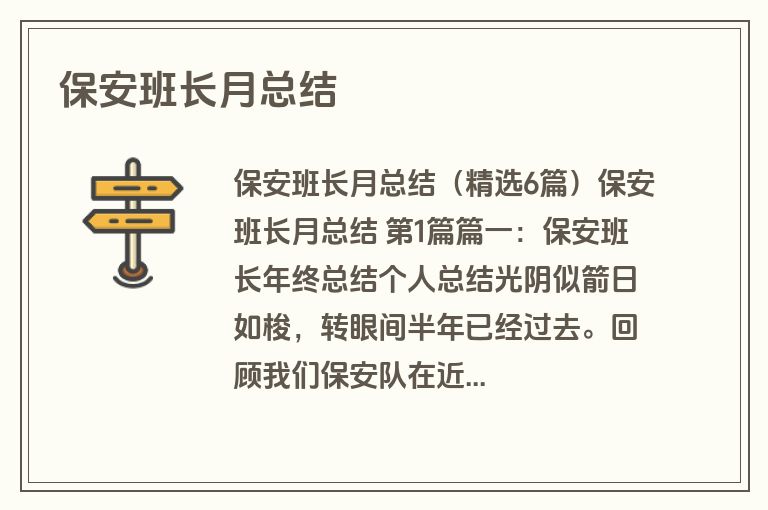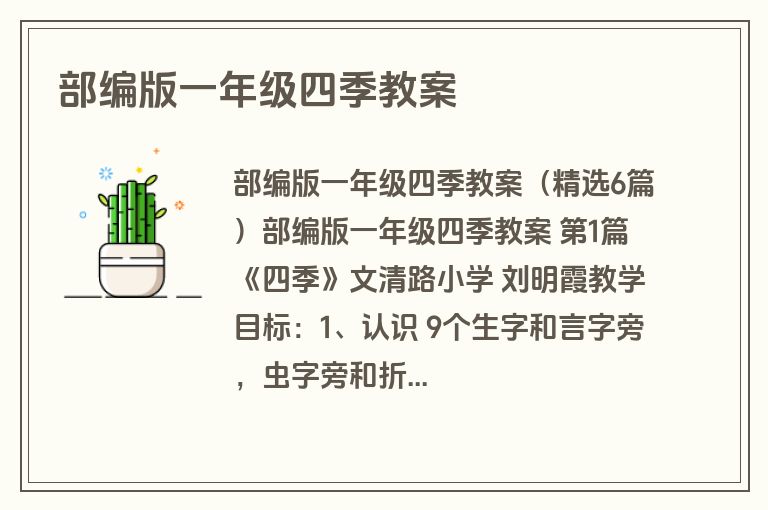Unit10学案(精选6篇)
Unit10学案 第1篇
Part1. Preview work
I. To get the main idea of each part
Part1 (1)
Part2 (2-6)
Part3(7)
II. Understanding the text
1 From the text , we can learn that Tacitus
A was a history writer
B worked for the local police
C was a close friend of Plony
D did research into volcanoes and earthquskes
2 What’s the passage mainly about?
A The death of Pliny the elder
B The eruption of Mount Vesuvius in 79AD
C The possible causes of volcanoes erupting.
D The ways of escaping from a volcano eruption
3 “The sight of it awoke the scientist in my uncle to go and see it from closer at hand(para2) The underlined parts refer to
A Mount Vesuvius , the uncle of the writer
B a mountain in the distance, Pliny the elder
C a cloud of unusual size and shape , qualities of a scientist like curiosity
D dark spots of dirt and ash; qualities of a scientist like curiosity
4 The writer didn’t think his uncle was afraid on the trip to Vesuvius because
A he had to rescue his friend’s wife Rectina
B he hurried to a place from which others were fleeing
C he had a good knowledge of how to survive a volcano eruption
D he was calm enough to write a report about what he observed
5 Pompy didn’t get away because
A he had to wait for a good wind
B there was no way out except by boat
C he was too scared to take any action
D he wanted to join Pliny in observing the eruption
6 led to the immediate death of the writer’s uncle
A The wrong decision he made
B His interest t study the volcano
C That he didn’t take the eruption seriously
D That he wanted to rescue Pomp after rescuing Rectina
7 What does the writer mean the last sentence of the letter?
A It is no easy task to be a history writer
B He reminds Tacitus of his uncle’s bravery
C He’s sorry that he can’t tell Tacitus more about the eruption
D He leaves it for Tacitus to decide which parts are important for his history book
III. Translate the following phrases and sentences.
1 吓死 2陷入恐慌
3 一场令人难忘的灾难
4 吸引我舅舅的注意
5 在附近6被惊吓
7坐落在山脚 8企求某人去做某事
9合适的风向 10与其不如
11是一回事,是另一回事
12近在咫尺 13出什么事了?
14船完了
15.You can pick out the important bits , for it is one thing to write a letter , another to write history, one thing to write to a friend , another to write for the public.
Part2. Language points
1 The sight of it awoke the scientist in my uncle to go and see it from closer at hand.
He lives close at hand.
I always keep a dictionary ready at hand.
Your big moment is at hand..
由hand构成的其他短语还有:
by hand from hand to hand
hand in hand over
in hand hand down
hand out give sb a hand
hand in hand shake hands with
on one handon the other hand
2 Upon arrival , my uncle hugged Pompy and tried to give him courage.
examples:
On his arrival at the station , he was arrested by the police
On asking for the information, I was told I must wait.
On the news of his accident , I was sad.
此句中的upon同on,与带有动词性意义的名词或动名词连用,表示“一就”,“在之时/ 后”例如 :
1 我一到家,就发现家中被盗了
2 我一通过驾照考试,我爸爸就给我买了一辆小汽车
除upon/on表达之外,还可以用as soon as the moment immediately后跟从句,或用No sooner than, hardly when, scarcelywhen
如:Please call me as soon as you get London
The moment he sat down, the doorbell rang.
His daughter ran to him immediately he got off the train.
No sooner dad he arrived than he was asked to leave again.
我一出门,天就下雨了
我一到上海就给你写信。
3 Ash and bits of rock that were burnt black falling onto the ship now, darker and more, the closer they went..
Examples:
More haste, less speed.
The more he talked, the more excited he became.
其构成:The+形容词和副词的比较级,The+形容词和副词的比较级。 后可接句子,也可接名词。在上下文清楚的情况下,还可省略。例如:
这首诗我越读的多,我越喜欢。
我们越是多聚在一起,就越快乐
越快,越好.
4 Helped by two slaves, he stood up and immediately fell down dead.
1) Full of fear, he returned home
2) Large or small, all countries are equal.
3) He stood there, dumbfounded.
那个老人躺在床上,一声不吭,回忆他的学生时代。
年轻时,我父亲不得不靠卖报纸为生。
5 He looked more asleep than dead.
他看上去预期说是死了不如说是睡着了
examples:
The book seems to be more a dictionary than a grammar.
She is more lovely than pretty.
More---than---在此表示同一事物的两种不同性质的比较,译为“与其说不如说”
Than后接与前同类的名词或形容词,而非比较对象。例如:
1 与其说他受了伤,不如说他受了惊.
2 与其说这岩石像牛,不如说他像马。
more than 其他意义:
Bamboo is used more than as a building material.
The terrible heat was more than the old man could bear.
They were more than happy to serve us..
他不仅仅是我们的老师,还是我们的朋友
超过一百个人参加了我们的社团
我们非常高兴再见到你
Translation
1胜利已在望,因此我们应该继续战斗。
2. 我一下车天就下雨了。
3 我越看她越觉得她可爱
4老师靠着课桌站着,说不出话来。
5我非常愿意用汽车把你送去
Grammar – Ellipsis
I. Knowledge about Ellipses
1. 简单句中的省略
1) 省略主语 祈使句中主语通常省略;其它省略主语多限于少数现成的说法。
(___) Thank you for your help.
(___) See you tomorrow.
(___) Doesn’t matter.
(___) Beg your pardon.2) 省略主谓或主谓语的一部分 (___) No smoking .
(___) Anything wrong ?
Why (______) not say hello to him ?
3) 省略作宾语的不定式短语,只保留to,但如该宾语是动词be或完成时态,则须在之后加上be或have:
–Are you going there? --Yes, I’d like to (______).
He didn’t give me the chance, though he had promised to (_________).
–Are you an engineer? --No, but I want to be.
–He hasn’t finished the task yet. --Well, he ought to have.
4) 省略表语
–Are you thirsty? --Yes, I am (______). His brother isn’t lazy, nor is his sister (______).
5) 同时省略几个成分
A: Have you finished your work ? B: ---(______) Not (______) yet.
2. 主从复合句中的省略
1) 主句中有一些乘法被省略
(______ ) Sorry to hear you are ill. (______ ) Pity that he missed such a good chance.
2) 主句中有提到的内容被省略
–Is he coming back tonight? --I think so.
–She must be busy now? --If so, she can’t go with us.
–Is she feeling better today? --I’m afraid not.
–Do you think he will attend the meeting? --I guess not.
# How so? Why so? Is that so? I hope so. He said so. I suppose/believe/hope not.
3. 并列句中的省略: 两个并列句中,后一个分句常省略与前一分句中相同的部分。
My father is a doctor and my mother (___) a nurse.
When summer comes, the day is getting longer and longer, and the night (______) shorter and shorter.
4. 其他省略
1) 连词的that省略: 宾语从句中常省略连词that,但也有不能省略的情况。
在定语从句中,that在从句中作宾语时可省略.凡是进行时态和被动语态的定语从句都可省略关系代词和be 动词。
2) 在某些状语从句中,从句的主语与主句的主语一致时,可省去“主语+be”部分
When (______) still a boy of 10, he had to work day and night.
She tried her best though (______) rather poor in health.
If (______) asked you may come in. If (______) necessary I’ll explain to you again.
3) 不定式符号to的省略
并列的不定式可省去后面的 to. I told him to sit down and wait for a moment.
help 当“帮助”讲时,后面的宾语或宾补的不定式符号to可带可不带.
I will help (____) do it for you. -
介词but前若有动词do,后面的不定式不带 to. The boy did nothing but play.
某些使役动词(let, make, have)及感官动词(see, watch, hear, notice, observe, feel, look at, listen to等)后面作宾补的不定式一定要省去 to, 在被动语态中须将to 复原。
I saw the boy fall from the tree. - The boy was seen to fall from the tree.
The boss made us work 12 hours a day. - We were made to work 12 hours a day.
主语从句中有动词do,后面作表语的不定式的 to可带可不带。
All we can do now is (____) wait.
find 当“发现”讲时,后面作宾补的不定式符号to可带可不带。
但如果是不定式 to be,则不能省略。
We found him (____) work very hard at the experiment.
She found him (________) dishonest.
4) 连词if在部分虚拟条件句中可省略,但后面的语序有变化。
If they had time, they would certainly come and help us.
Rewrite:________________________________________________
If I you, I would do the work better
Rewrite:____________________________________________
Should there be a flood, what should we do?
Rewrite: __________________________________________________--
5) 主句和从句各有一些成分省略。
The sooner (you do it), the better (it will be).
II. Practice
1. _______ time, he’ll make a first-class tennis player.(北京)
A. Having given B. To give C. Giving D. Given
2-Susan, go on. Your sister is cleaning the yard.(NMET20030)
--Why _____? John is sitting there doing nothing
A. him B. he C. I D. me
3. Generally speaking,_____ according to the directions, the drug has no side effect.(2003 上海)
A. when taking B. when taken C. when to take D. when to be taken
4. Unless_____ to speak, you should remain silent at the conference.(2003上海春)
A. invited B. inviting C. being invited D. having invited
5. ---The boys are not doing a good job at all, are they ?(2003北京春)
---________________.
A. I guess not so B. I don’t guess C. I don’t guess D. I guess not
6. The man we followed suddenly stopped and looked as if ____ whether he was going in the right direction.(2003春)
A. seeing B. having seen C. to have seen D. to see
7. When______, the museum will be open to the public next year.(上海春)
A. completed B.completing C. being completed D. to be completed
8. The director gave me a better offer than _____( 上海)
A. that of Dick’s B. Dick’s C. he gave Dick D. those of Dick
9. –Does your brother intend to study German?(上海)
-- Yes, he intends _______.
A. / B. to C. so D. that
10. –Alice, why didn’t you come yesterday? ( MET)
--- I ________, but I had an unexpected visitor.
A. had B. would C. was going to D. did
Answers 1-5 DDBCD 6---10 DACBC
Unit10学案 第2篇
(1) Learn some useful words, phrases and sentence patterns.
(2) Train the students’ writing ability by writing a short passage using the words, phrases and sentence patterns learned.
Step1: Check homework
根据预习案中的词组,并以其正确的形式填空
1.The famous actress ______________ cancer several years ago.
2.He prefers to give his life for the country _________________ give in to the enemy.
3.I ________________ him enough to recognize him at first sight.
4.Every student in our school _________________ the library, enjoying interesting books.
5.The government ___________a committee to look into the cause of the fire.
6.After the heated discussion, most of us _____________ the view that we should begin the project as soon as possible.
7.There are twenty-four girls in my class, _____________40 percent of all the students.
8.Don’t ______________ such a thing, for it is no good for us.
Step2: Language points
1. as conj.
1) As time went on, his theory proved true. __________________________
With time __________ (go) on, his theory proved true.
2) They did as I had asked.______________
3) As you were out, I left a message. ______________
4) As is often the case, the power went off in this rural area. __________________
5) Clever as he is, he failed this exam. _________________
2. cure
(n.) 治疗,疗法(常与for连用)
一种有效的癌症疗法 ______________________
(v) 治疗,治愈 (常与of连用)
我们相信他们很快能够治愈那位老人严重的头痛病。
_____________________________________________ of his bad headache soon.
区别 treat , cure, heal
(1) treat 医治,治疗,强调治疗的动作或医治的过程,不涉及治疗的结果。
Which doctor is treating you for this trouble?
(2) cure 治愈,痊愈,特别指病后的恢复健康
Penicilin cured him of pneumonia.
(3) heal 强调伤口的愈合;破裂感情的弥合
The cut healed up without leaving a scar.
当堂反馈
(1)The doctors are trying to ___________ him ___________ a new drug. 医生们尝试用一种新药为他治病。
(2)This new medicine soon __________ my cold. 这种新药很快治愈了我的感冒。
(3)His wounds are ____________ over. 他的伤口在愈合。
3. occur (________,__________)
1) ___________ When exactly did the accident occur?
2) An idea occurred to me. ________________
It occurred to me that I had left the classroom without locking the door.
________________________________________________________________
总结: 某人突然想起 _____________________________/_____________________________
4.subscribe to 注:to 是介词,后跟名词,代词或动名词。
(1)______________
How many kinds of newpapers and magazines have you subscribed to so far?
(2) _____________
We all subscribe to the plan that we’ll do the experiment ahead of time.
拓展:to 为介词的短语
5. devote
devote one’s life
one’s body and soul to doing
oneself
one’s efforts/ time
他把一生都献给了造福人类的事业。
___________________________________________________________________
比较 :________________(devote) all his time to his work, he spent little time with his family.
________________(devote) to his work, he spent little time with his family.
6. apart from
(1)________________ All the children like music apart from Bobby.
(2) ________________Apart from being too large, the trousers don’t suit me.
当堂反馈
_______________ being fun and good exercise, swimming is a very useful skill.
A. Except for B. Apart from C. Or rather D. In spite of
7. It is estimated that 据估计
据估计,这项工程将持续四年。
______________________________________________________________________
用as/what 改写这个句子
__________________________________________________________
_________________________________________________________
当堂反馈
_____________is known to us all is that the Olympics Games took place in Beijing
A. It B. What C. As D. Which
8. the key to sth / to doing 的关键
approaches to doing 的方法
solutions to doing 的解决方法
成功的关键是努力学习。
____________________________________________________
Step 3随堂检测
1. Once ___________ to such an argument, the meeting will be tiring and endless, I think.
A. devoted B. devoting C. to be devoted D. having devoted
2. --- Who should be responsible for the accident?
--- The boss , not the workers. They just carried out the order__________.
A. as told B. as are told C. as telling D. as they told
3. It never occurred to me __________ you could succeed in persuading him to change his mind.
A. which B. what C. that D. if
4. _________________ in the regulations that you should not tell other people the password of your e-mail account.
A. What is required B. What required C. It is required D. It requires
5. The key _________ the problem is to meet the demand __________ by the customers.
A. to solve; being solved B. to solving; made C. to solve; to be made D. to solving; having been made
6. _____________, his idea was accepted by all the people at the meeting.
A. Strange as might it sound B. As it might sound strange
C. As strange it might sound D. Strange as it might sound
Step 4 Writing (选用文章中的词组进行写作)
自从艾滋病在二十世纪八十年代被发现以来,全球感染艾滋病的人数在以令人恐怖的速度增加。据估计,到年底,全球艾滋病感染者首次突破4000万人。根据一份最新的报告
Unit10学案 第3篇
一、重视基础, 分层处理, 满足不同层次的学习需求
教师要面向全体学生, 因材施教, 尊重学生的差异, 采用分次教学法。基本教学要充分考虑一般学生的学习状态和语言认知规律, 为其提供多种学习选择, 对于基础较薄弱的学生, 要进行补偿教学, 对学有余力的学生要进行拓展教学, 适应学生的个性发展需求, 使每个学生均学有所得。
二、教学理念、教学方法的反思
1.创 造 民主 和 谐 的 教 学 环 境 。
民主和谐的教学环境是互动式教学的重要心理环境。首先, 教师应在学生的心目中保持良好的形象。当高素质的教师在台上执教时, 学生的反应是积极的, 教学中的互动是自然的、共鸣是不断的;其次, 教师要重视情商因素的培养, 使学生在教学中“自由地呼吸”, 积极主动地参与英语口语教学;再次, 教师要尊重学生的人格和平等学习的权利, 师生之间要进行民主平等的思想和情感交流。当“民主”与“和谐”走进课堂时, 师生间的心理距离缩小, 课堂气氛活跃, 从而为互动式教学提供适宜的气候和土壤。
2.以 学生 为 中 心 , 开 展 合作学 习 。
英语教学研究与实践已经从以教师为中心转向以学生为中心, 从以传授知识为重点转向以学生的参与和知识发展为重点。随着新英语教学大纲的颁布与实施, 我国对中专英语教学改革的研究越来越重视与深入, 小组合作学习是一种以学生为中心, 以小组合作形式进行语言交际的学习活动。实践证明, 小组合作学习能使学生在课堂上有更多的时间和机会练习使用语言, 有利于消除学生在交际活动中产生的焦虑心理提高学生的语言交际和知识发展能力, 调动学生参与学习的积极性和创造性。
3.创 设情 境 , 营 造 英语 氛 围 , 充 分 发 挥 学生学 习 的 主 动 性 。
从单词教学到对话独立运用, 整个过程处处注意创设真实情境, 营造轻松愉快的课堂氛围;充分发挥道具和肢体动作的作 用 , 进入角色 对话.在操练过 程中 , 充分注意 对不同层次的学生提出不同的要求, 因材施教。让学生自由搭配、结合 , 好生做示 范 , 后进生适 当配合 , 反复操练 , 让不同层次 的学生去 尝试、去演 练、去表演 , 极大地帮 助他们树 立学好英语的信心, 创设机会让他们体验成功 的快乐。 因此英语教学要充分调动和发挥 学生的主 体作用, 让学生乐 于开口, 勇于实践, 让每个层次的学生都有所收获, 以达到实 施素质教育的目的。
三、教学技巧、教学环节、教学过程的反思
1. 情 境创 设 环 节 紧 密 结 合 职 业 教 育 的实 际 需 要 , 课 文导入自然有趣、新颖。
教学是一门艺术, 英语教师应该追求教学过程设计的生动有趣。开头以音频视频导入, 使学生尽快明了本节课的讲解内容, 为整节课奠定一个良好的基调, 为后面教学环节的展开渲染氛围。导入是为了在第一时间创设灵活生动的情境, 激发学生的学习兴趣。
2.突 出 对 话 练 习 环 节, 有 助 于 加 强 学生对 所 学 新知识 的 灵活应用。
本单元我采用了问答法。通过师生多次问答, 不仅活跃了学习气氛, 而且加深了学生对重点词汇的理解和掌握, 同时开始教授新单词, 要求学生掌握一些面试交际用语;创设情境进行对话, 使学生深入情境;学习了求职招聘广告, 使大家认识招聘广告的一些基本结构。最后教学一封简短的求职信, 使学生初步掌握求职信的格式及内容。教学过程符合学生的认知规律和学习习惯, 各个环节之间的衔接过渡比较自然。
四、对课堂教学的整体效果和自身素质的反思
本单元主要介绍求职和面试方面的内容。通过学习, 学生不仅可以掌握一些面试场合的交际用语, 学习如何写简历和求职信, 还可以学到一些面试技巧。
Unit10学案 第4篇
1.能够在情境中运用句型Where is she?Is she in the ...?Yes, she is.\No, she isnt. Shes in the...询问物品或人物的位置,同时作出判断。
2.能够在语境中理解新词或词组living room,study,kitchen的意思。
3.能够用正确的语音、语调朗读对话。
二、教学重、难点
重点:掌握一般疑问句Is she\he\it...?及其回答。
难点:掌握一般疑问句Is she\he\it...?及其回答,单词kitchen的读法。
三、自主学习
1.读一读下列单词和短语。
living room, study, kitchen, in the living room, in the study, in the kitchen。
2.你会读下面的句子吗?
I have a cat. Shes cute.
Where is she?
Is she in the study? No, she isnt.
Is she in the living room? No, she isnt.
Look!Shes in the kitchen.
四、探究学习
1.听课文录音,然后让学生回答下面的问题。
(1)Is the cat in the study?
(2)Is she in the living room?
(3)Where is she?
2.小组内分角色表演课本中的对话。
3.听老师读句子,找出走丢了的单词娃娃。
(1)——Is she in the_____________________? ——No, she_____________________.
(2)Is she in the ?
(3)Look!Shes in .
(4)Is she in the study?_____________________,_____________________is.
4.我会连线。
(1)in the living room A. 在书房里
(2)in the kitchen B. 在客厅里
(3)in the study C. 在厨房里
【Keys:】
1.(1)No, it isnt. (2)No, she isnt. (3)Shes in the kitchen.)
2.e; i; i; u; a。
3.(1)study;isnt (2)living room (3)the kitchen (4)Yes; she。
4.(1)—(3)BCA
五、课时小结
1.本节课我的收获是:_______________。
2.本节课我的不足是:_____________________。
Unit 4. My home
A.Lets talk
(一)教学目标与要求
1.知识目标
(1)能够在情境中运用句型Where is she? Is she in the...?Yes,she is.\No,she isnt. Shes in the...询问物品或人物的位置,同时作出判断。
(2)能够在语境中理解新词或词组living room, study, kitchen的意思。
(3)能够用正确的语音、语调朗读对话。
2.能力目标
培养学生灵活运用语言的能力。
3.情感态度目标
在生活中能够主动询问或对别人的询问能热情应答。
(二)教学重、难点
重点:掌握一般疑问句Is she\he\it...?及其回答。
难点:掌握一般疑问句Is she\he\it...?及其回答,单词kitchen的读法。
(三)课前准备:头饰、教学卡片和多媒体课件
(四)教学过程
Step 1:Warm-up
1.Greetings:T: Hello! Boys and girls. Nice to meet you! Lets begin our class.
2.T: First, lets sing a song. OK? We have a new classroom
【设计意图】从师生问候到听音乐跟唱歌曲不仅为学生营造了温馨的学习氛围,还可以帮助学生热身并迅速进入学习状态,为以下教学奠定良好的基础。
Step 2:Revision
1.游戏:教师用多媒体课件出示一张教室的图片,并让学生快速抢答Whats in the classroom?
2.根据教室的图片对学生进行提问Where is the picture\com-puter\teachers desk?
【设计意图】快速抢答教室没摆设的游戏既能复习旧知识,又能提高学生的学习兴趣,更重要的是为引出本课时的新知奠定了坚实的基础。
Step3:Presentation
1.利用课件出示奔跑的灰太狼,让学生猜一猜Where is he? 板书句型。
2.为灰太狼填上背景图,引出新句型Is he in the...?及答语Yes, he is.并板书。
3.把背景图换成客厅Is he in the classroom?答语No, he isnt.并板书,引出新词living room.
【设计意图】利用多媒体给灰太狼换背景图,从视觉上给学生耳目一新的感觉,吸引学生的注意力,从而引出新知,培养学生的听说技能。
4.利用多媒体再给灰太狼换背景图Is he in the living room? No, he isnt.从而引出新词study。
5.再更换背景Is he in the study?No, he isnt.引出新词kitchen.(由于kitchen是本课时的难点,加强该单词的练习密度。)
【设计意图】利用多媒体的优越条件为学生创设逼真的情景,使学生身临其境,感受各个房间的变化,从而引出各种单词,突破教学重难点。在学习单词的同时对句型Is he in the...?进行机械操练,加大练习密度,培养学生的语感。
6.出示小猫的图片,让小猫躲起来让学生猜一猜Where is she? (注释)外国家庭通常把宠物作为家庭成员看待,所以这里的cat用she表示,而不用it。
7.让学生带着问题看课文视频,看完后进行回答。
8.听录音跟读课文。
9.自读课文后,教师找学生配合表演对话,小组之间练习对话。
【设计意图】这一部分的教学设计主要是听音、正音的环节,培养学生良好的语音语调。
Step4. Consolidation
1.游戏:魔法课堂
教师和学生玩一玩魔法的游戏,让学生猜一猜钢笔在哪里?教师给予提示。
2.教师请一名学生扮演魔法师,让学生一起找一找光头强在哪里?
【设计意图】巩固环节我采用魔法的游戏开展,培养学生说的技能,在模拟魔法的情景表演阶段检验学生对本节课重点单词及句型的理解和运用,同时培养学生的小组合作能力。
Step5:Homework:
1.跟读课文录音,和家长谈论一下对话中的小猫在哪里?
2.和朋友们玩一玩魔法游戏,猜一猜所藏的物品在哪里?
【设计意图】小学生的表现欲望极强,通过布置和家长一起听录音、和好朋友一起玩魔法游戏,不仅复习了本课时的内容,还让学生在家长面前展示了自己,从而增强了学生学好英语的自信心。
参考文献:
王艳.基于情境的小学英语词汇教学设计[D].西南大学,2011.
Unit10学案 第5篇
班级:学生:日期:编号 :
【学习目标】
知识目标:1.掌握重点词汇:January, February, Christmas, sweep away, luck, lucky,celebrate, traditional, dumpling, programme, mean, Merry Christmas。2.掌握重点句型:My mother is cleaning our house and sweeping away bad
2.Here’s the first one.3.We are celebrating Spring Festival with a traditional family dinner on the evening before Spring Festival.4.There’s so such delicious food.小组长检查登记完成情况。
二、挑战单词关
luck.Here’s the first one.We are celebrating Spring Festival with a traditional family dinner on the evening before Spring Festival.There’s so such delicious food.3.进一步学习、理解现在进行时态和一般现在时态的用法和区别。4.掌握连词and的用法。
能力目标:1.能读懂短文并完成相关练习。
2.能运用所学句型向他人介绍有关春节的习俗。3.能在写作中熟练、正确地运用连词and。【学习重点,难点】
1.理解和掌握本单元的重点词汇和句型的基本含义及用法。2.进一步理解和掌握现在进行时态和一般现在时态的用法和区别。3.掌握连词and的用法。
学法指导:自主学习,小组合作,讨论交流
学习过程:
一、课前预习
(一)写出下列相应的英语单词和短语。
1.圣诞节2.二月3.一月4.在……之前
5.扫去6.运气7.桌子8.庆祝
9.传统的10.饺子11.(电视)节目12.毛线衣13.外套14.意思是15.幸运的16.圣诞快乐16.讲,告诉
(二)翻译下列句子。
1.My mother is cleaning our house and sweeping away bad luck.1.用PPT图片导入单词和词汇的教学。2.小组长组织本组成员朗读,并纠正发音。3.齐读。
4.默写、改正并统分。
三、合作探究
1.互相谈论Activity 1的图片上正在发生的事情。2.阅读短文,将短文与图片配对。3.听录音跟读,再阅读完成Activity 3。
4.齐读Activity 4的短语并记忆,然后用短语造句并正确地使用连词and。
四、达标测评:
1.根据汉语提示完成句子。
(1)我们打扫房间,扫走坏运气。We clean the houses andbad luck.(2)你们怎样庆祝圣诞节?How do you?
(3)我们有许多传统节日。We have afestival.(4)我们常常在电视上看一个特别节目。We usually watch aon TV.(5)我的爸爸正在制作大红灯笼。My father isbig.(6)我妈妈正在为春节做准备。My mum isSpring Festival.(7)他们正在学习舞龙。Theya dragon.(8)她正在打扫屋子。She.分配好任务,每组按照任务要求把答案写在黑板上。全班核对答案。
五、小结
小结本节课所学内容,再齐读;PPT展示单词。【课后巩固】
1、抄写并记忆本单元的单词,每个三遍,听写一遍,家长签字。
2、完成《课堂作业》P70的第一、二、三大题以及课后巩固的练习。
Unit10学案 第6篇
第一节:口语突破单词
1. lead v. 领导,率领,通向;导致 adj. 领头的,领先的
The guide led us through the forest .到有令我们穿过森林。
Being so lazy will lead to your failure .懒惰会导致你失败。
2. act v./n. 表演,担当,举动,动作
He has acted in many movies .他演了很多电影了。
It is an act of kindness to help others. 帮助别人是一种慈善的行为。
3. adapt v. 使适应
He has not adapted to the custom here. 他还不适应这里的习俗。
You should adapt yourself to the new environment .你应该适应新的环境。
4. original adj. 最初的,原始的,独特的
When arrive at a new place, we shouldn’t destroy the original species .
到达一个新的地方时,我们不应该破坏那里原有的物种。
His design is highly original .他的设计独树一帜。
5. devote vt. 投身于,投入于
He devotes himself to protecting the milu deer in China .他致力于保护中国的麋鹿。
She devoted every spare moment to study .她把每分每秒的业余时间投入到学习上。
6. common adj. 共有的,普遍的 n. 共有,普遍
These plants are very common in the south .这种植物在南方很常见。
We have many things in common .我们有很多共同之处。
7. valuable adj. 贵重的,有价值的
Thank you for your valuable advice .谢谢你的宝贵意见。
He collected a lot of valuable stamps .他收集了许多有价值的邮票。
8. reduce vt. 减少,缩减,简化
We must reduce the cost when making the new cars .生产新车时,我们必须得减少成本。
I reduce my weight by exercising a lot .我通过大量的锻炼来减轻我的体重。
9.respond v. 回应,回答,响应
She asked where he had been, but he didn’t respond.
她问他到什么地方去了,他却不回答。
How would he respond to the news?他对这个消息有何反应?
10.attractive adj. 吸引人的;有魅力的
I didn’t find him attractive at all.我觉得他一点也不讨人喜欢。
Your proposal sounds very attractive.你的建议听起来很有吸引力。
11.organize v. 组织;组织起来
Our school organizes trips to various places of interest every year.
我们学校每年都组织学生去游览名胜。
Jane asked me to help her organize the party.简叫我协助她组织了这个聚会。
12.brief adj. 简洁的;扼要的
The manager made a brief statement to open the meeting.
经理在会上致了简短的开幕词。
To be brief with you, we can’t accept such harsh terms.
简单地说,我们不能接受这样苛刻的条件。
第二节:口语突破短语
1. in danger 在危险中;垂危
The country is in danger of war.那个国家正处于战争的边缘。
He is badly ill. His life is in danger.他病得很重,他有生命危险。
2. as a result of 作为(……的)结果
He was late as a result of a traffic jam.由于塞车,他迟到了。
He made a big mistake as a result of losing his job.他犯了个大错误,结果丢了工作。
3. die out 灭绝
Dinosaurs died out about 60 million years ago.恐龙在大约六千万年前就灭绝了。
The old customs in my hometown are dying out.这种旧风俗在我的家乡正逐渐消失。
4. take measures 采取措施
Strong measures will be taken against careless drivers.
粗心大意的驾车人将被采取强硬的措施。
What measures shall we take to stop pollution?我们采取什么措施来停止污染?
5. make a difference 有关系;有影响;很重要
Exercise makes a big difference to your health.运动对健康很重要。
You have to believe that you can make a difference.你得相信你会很成功。
6. devote…to 献身于……;专心于……
He devoted his life to literature.他一生专心致志于文学。
Li Yang devoted all his time and efforts to spreading English in Asia.
李阳把全部的时间和精力都用来在亚洲推广英语上。
7. at present 现在;目前
Don’t worry, he is with me at present.别担心,他现在和我在一起。
That is how the matter stands at present.那就是目前的状况。
8. set free 释放
They said that the prisoner should be set free as soon as possible.
他们说应该尽快释放那个犯人。
They hope to set free all of the animals in the zoos .他们希望把动物园里的动物都释放了。
9. throw away 扔掉;抛弃
Don’t throw away these newspapers. They may come in handy.
别把那些报纸扔了。没准什么时候能用上。
I must have thrown away the tickets by accident.
我一定是无意中把票给扔了。
10. first of all 首先
I want to succeed, but first of all, I have to master English.
我想成功,但首先我要掌握英语。
I want to go, but first of all, I have to finish my hometown.
我想去,但首先我要把我的作业做完。
第三节:口语突破语法
[本单元重点语法:复习直接引语和间接引语]
1. She said, “ I’ll cone here to listen to a lecture tomorrow .”
→She said that she would go there to listen to a lecture .
2. He said, “ Did you see him last night ? ”
→He asked me if I had seen him the night before .
3. “ What do you want ? ” he asked me .
→He asked me what I wanted .
4. The girl said to her mother, “ Please give me the book .”
→The girl told her mother to give her the book .
第四节:口语突破句型
1. …before it is too late. 趁早……
You should make the best of your time and study more before it is too late .
你应该充分利用时间多学一些东西。
We should reduce the pollution before it is too late .我们应该尽早减少污染。
2. …either…or… ……要么……或者……
Either go to work or you’re fired !要么去工作,要么走人!(不要让老板对你说这样的话哦)
Either you or I am the right man for the position .要么是你,要么是我将得到这个职位。
3. if you could… , what would you… ?如果你能……,你会怎么做?(“if you could”是一个非真实条件句,所以主句用的是虚拟语气。)
If you could help poor people, what would you help them with first ?
如果你能帮穷人,你首先会帮帮他们什么?
If you could go to the moon, what would you do there ?
如果你能去到月球,你打算在那儿做什么?
4. It follows / followed that… 必然有……的结果。/ 结果是……
He drank too much coffee. It followed that he couldn’t fall asleep.
他喝了太多的咖啡。必然睡不着。
Our air is seriously polluted. It follows that we have to take measures to protect our environment .我们的空气污染严重。必然得尽快采取措施保护我们的环境。
5. It will cause… 这会导致……
It will cause a fire if you smoke here .如果你在这儿吸烟,会导致火灾的。
It will cause trouble again if you don’t pay attention .如果你不注意,会再次惹麻烦的。
第五节:“三最”短文操练
Today, pollution has become a serious problem to our earth and us. Waste has polluted the air, seas, rivers, and land. It does great harm not only to human beings, but also to animals. Many factories allow poisonous gas and smoke to escape into the air. This damages the health of every living thing on earth. I hope everyone will take steps to solve this serious problem. Pollution must be controlled and the air must be cleaned. Everyone should do his part to fight pollution.
今天,对于我们的地球和我们本身来说,污染已经变成了一个严重问题。废弃物已经污染了空气、海洋、河流和陆地。它不仅对人类而且对动物也造成了严重的伤害。很多工厂都让毒气和毒烟排放到空气里。这危害到地球上每一种生物的健康。我希望每一个人都采取措施去解决这个严重的问题。污染必须要受到控制,空气必须要得到洁净。每个人都应该尽自己的职责与污染作斗争。
★ 人教版高一英语unit10 Are We Endangered?阅读课教案
★ NSEFC-II Unit10听力时空(人教版高二英语上册教案教学设计)
★ 六年级下unit4《Rules around us》教学反思
★ 新教材高一英语Unit11 The Sounds of the world 教案
★ Body language Language points 教案教学设计(人教版英语高一)
★ 高一上册人教版英语课本教学设计
★ 人教版九年级英语unit10知识内容
★ unit18整单元教案(人教版高一英语下册教案教学设计)
★ 人教版高一数学教学设计







